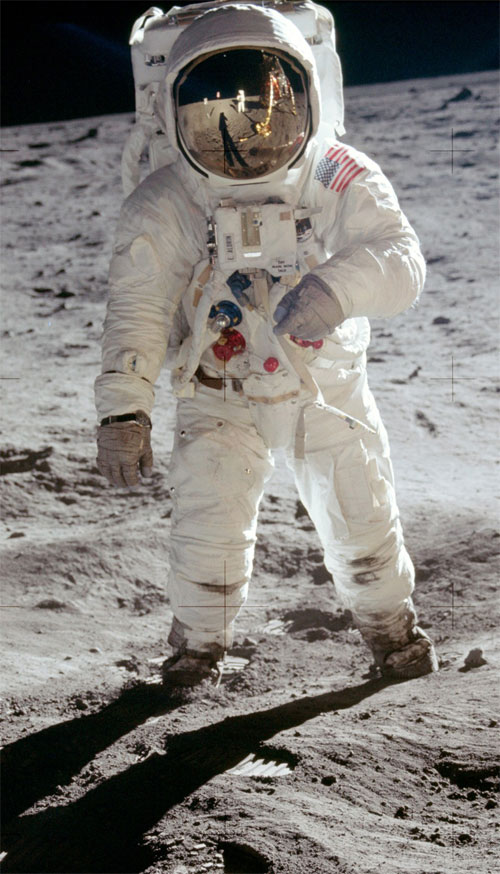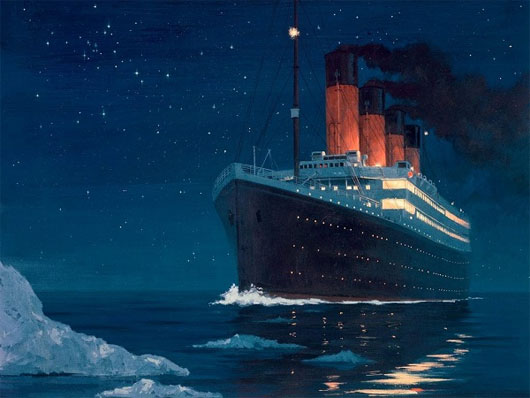Marvel at the accuracy of prophecies
More than 100 years ago when humans set foot on the moon, a French writer told about the first human journey to the moon . These things are considered ridiculous. Precise prophecies are often considered . "crazy" at the time of making.
Arthur Clarke - an English author who wrote in a science fiction genre once said: 'If by some miracle, a prophet can accurately describe the future, those prophecies come out first. it will be so absurd, ridiculous that people will laugh at the prophet's face. '
However, history has proven that many prophecies have been thought to be absurd, silly eventually come true.
In 1660, an Irish philosopher named Robert Boyle made many predictions about the future. These predictions were carefully rewritten by him, including the ideas that were thought to be 'crazy' at the time, such as ' people would have a very effective cure for disease by implanting. organ transplant '.
In the pre-Enlightenment period when superstitious practices were still very popular in Europe, Robert Boyle's idea was beyond the times.

In 1865, the French writer of science fiction genre - Jules Verne - foresaw the Apollo landing on the moon, more than 100 years before the event came true.
At that time, he wrote a short story called 'From the Earth to the Moon' about the first human journey to the moon. In the story, Verne outlines many details that were strange after that came true.
Can mention the details such as missiles will launch from Florida (USA), spacecraft will be called Apollo, the number of astronauts, weightless state . In 1865, Verne could not absolutely Find any documents that tell you about these things in advance.

In 1898, a novel called 'Futility, Or The Wreck of the Titan' (or the sinking of the Titan ship) anticipated the tragedy of the Titanic. Author of the novel is American writer Morgan Robertson.
In his novel, Robertson tells of how a large, largest ship ever produced, and on its first voyage, crashed into an iceberg. In the end, the Titan ship sank to the ocean floor. 14 years later, the Titanic repeated the same tragedy as the Titan ship in Robertson's novel.

In 1914, British writer who specialized in sci-fi genre HG Wells anticipated the advent of the atomic bomb. At that time, Wells released the novel 'The World Set Free'.
In the story there is a scene depicting a city destroyed by an atomic bomb. In fact, it was not until 1942 that the first atomic bomb project was conducted in the United States. However, right from 1914, relying only on the little knowledge of radioactive elements, Wells envisioned a kind of bomb with tremendous destructive power.

In 1988, when the concept of the Internet was not as widespread as it is now, American writer Isaac Asimov predicted that the Internet would change education.
- Missing prophecies about 'Doomsday'
- The 1912 article predicted a horrible accuracy of today's problems
- Confucian Zhuge Liang and prophetic prophecies
- What is the accuracy of the clock, and is anyone really interested in it?
- List the correct prophecies to the human
- Review the terrifying prophecies of the prophet Nostradamus
- Detecting weird dinosaur fossils in Canada
- Summarize news 'hot' June 1 week
- The US military developed a remote identification device via heart rate, 95% accuracy.
- Vietnam developed the North Dau navigation system receiver
- IT 2005: The ecstatic prophecies and ... the most
- Apocalyptic mystery: Ancient books and prophets
 'Fine laughs' - Scary and painful torture in ancient times
'Fine laughs' - Scary and painful torture in ancient times The sequence of numbers 142857 of the Egyptian pyramids is known as the strangest number in the world - Why?
The sequence of numbers 142857 of the Egyptian pyramids is known as the strangest number in the world - Why? History of the iron
History of the iron What is alum?
What is alum?